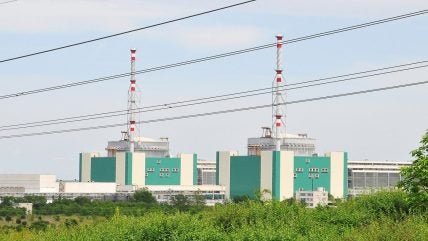
Bulgaria and the US have signed a formal agreement to collaborate on the construction of two new units at the Kozloduy NPP (7&8). The document, signed by Bulgarian Energy Minister Rumen Radev and US Assistant Secretary of Energy for International Affairs Andrew Light, outlines cooperation in nuclear power development and technology exchange. “We have signed an important international agreement that confirms the commitment of Bulgaria and the US to a strategic nuclear partnership,” Radev said following the signing ceremony. “With this agreement, Bulgaria gains significance for the entire region,” Light said.
According to Radev, the cost of electricity generated by new units will be capped at €65 ($70) per megawatt-hour (MWh). The total cost of construction is estimated at €14bn, pending a forthcoming report from plant supplier US-based Westinghouse. The end of March is the deadline for Westinghouse to submit an engineering report with an indicative price.
Radev said the government views the construction of the two units as a national endeavour, with state participation of 25-30% and financing secured through loans, partly backed by state guarantees. However, he was optimistic that total project cost could be reduced. He affirmed that arrangements have been made for fixed terms and prices, to ensure the optimal cost for the project. He predicted that future electricity prices would remain competitive, well below the European average, and not exceeding €65/MWh.
Earlier in February, Kozloduy NPP subsidiary, Kozloduy NPP-Newbuild (KZNPP-NM – Kozloduy NPP Novi Mostnosti) announced that five companies had expressed interest in building Kozloduy 7&8 under an EPC (engineering, procurement & construction) contract. While the units are to have Westinghouse AP1000 reactors, Westinghouse will not take part in the construction but will retain overall control of the project.
Currently, Kozloduy NPP operates two Soviet-built VVER-1000 reactors (units 5&6). Bulgaria was obliged to close four older VVER-440 units as a condition for accession to the European Union, even though the units had undergone significant safety upgrades.
In January 2023, the Bulgarian Parliament by a majority vote decided on the need to build two new reactors using AP1000 technology and obliged the government to negotiate with the US government on this issue. In March KZNPP-NM and Westinghouse set up a joint working group to plan deployment of the AP1000 reactor in Bulgaria. In June, Westinghouse signed a Front-End Engineering & Design (FEED) contract with KZNPP-NM for a AP1000 reactor to be constructed at the Kozloduy NPP site. According to the parliamentary schedule for construction of the new units, the construction company must be selected by 30 April 2024 and will then join a consortium with Westinghouse.
Image: US Assistant Secretary of Energy for International Affairs, Andrew Light, and Bulgarian Energy Minister, Rumen Radev, following the signing ceremony






